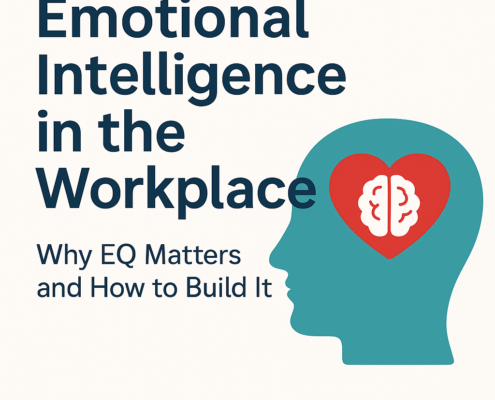 https://transformationacademy.com/wp-content/uploads/2025/05/60E6B2C6-5118-475F-ABE9-0A29B8741CE0.png
1024
1024
Joeel & Natalie Rivera
https://transformationacademy.com/wp-content/uploads/2021/03/Transformation-Academy-L-300x252.png
Joeel & Natalie Rivera2025-05-07 19:26:442025-05-02 19:33:01Emotional Intelligence in the Workplace: Why It Matters and How to Build It
https://transformationacademy.com/wp-content/uploads/2025/05/60E6B2C6-5118-475F-ABE9-0A29B8741CE0.png
1024
1024
Joeel & Natalie Rivera
https://transformationacademy.com/wp-content/uploads/2021/03/Transformation-Academy-L-300x252.png
Joeel & Natalie Rivera2025-05-07 19:26:442025-05-02 19:33:01Emotional Intelligence in the Workplace: Why It Matters and How to Build ItEmotional Intelligence in the Workplace: Why It Matters and How to Build It
Emotional intelligence (EQ) isn’t just a buzzword—it’s a critical skill set that drives collaboration, leadership, and productivity in today’s workplace. From managing stress and navigating conflict to inspiring teams and supporting well-being, EQ is the secret ingredient of high-performing professionals and organizations.
In this post, we’ll explore why emotional intelligence in the workplace matters more than ever—and how you (or your team) can develop it.
What Is Emotional Intelligence?
Emotional intelligence is the ability to recognize, understand, and manage your own emotions—and to recognize, empathize with, and influence the emotions of others.
It’s made up of five key components:
- Self-awareness
- Self-regulation
- Motivation
- Empathy
- Social skills
When these abilities are practiced at work, they improve communication, strengthen leadership, and create a healthier, more productive environment.
Why Emotional Intelligence at Work Matters
- Better Communication
People with high EQ express themselves clearly, listen actively, and interpret non-verbal cues—leading to fewer misunderstandings and more productive conversations.
- Stronger Leadership
Great leaders don’t just manage—they inspire. Emotional intelligence helps leaders build trust, navigate conflict, and motivate teams with empathy and clarity.
- Improved Team Collaboration
Teams thrive when members are self-aware, respectful, and emotionally responsive. EQ reduces tension, supports diversity, and encourages psychological safety.
- Enhanced Stress Management
Emotionally intelligent employees can recognize burnout early, regulate stress responses, and make clear-headed decisions under pressure.
- Higher Employee Engagement
Workplaces that promote emotional intelligence see better morale, lower turnover, and a culture of open feedback and mutual support.
How to Build Emotional Intelligence in the Workplace
- Start with Self-Awareness
Encourage employees (and yourself) to reflect on emotional triggers and communication patterns. Journaling, mindfulness, or 360° feedback are great starting points.
- Practice Active Listening
Make space for others to speak without interruption. Summarize what you’ve heard, reflect back emotions, and ask open-ended questions.
- Train for Empathy
Workshops and courses that focus on perspective-taking and cultural awareness can help team members connect more deeply across differences.
- Model Emotional Regulation
Leaders set the tone. Demonstrate calm under pressure and talk openly about how you handle stress. This builds trust and sets a powerful example.
- Invest in EQ Development
Like any skill, emotional intelligence can be strengthened through intentional learning. Online courses, coaching, and team training can help integrate EQ into your workplace culture.
Take the Next Step: Train Your Team in Emotional Intelligence
Want to bring these skills to your organization?
Our Emotional Intelligence in the Workplace course is designed specifically for professionals and teams. You’ll learn:
- How to recognize and manage emotions under pressure
- Techniques for improving workplace communication
- Tools to support emotional awareness, leadership, and collaboration
Whether you’re a manager, team leader, or HR professional, this course offers practical, research-based tools you can use immediately. Click the link above and receive 60% off.
Final Thoughts
Emotional intelligence isn’t a soft skill—it’s a core skill. When teams and leaders embrace EQ, they don’t just feel better—they perform better.
Make emotional intelligence a part of your workplace culture, and you’ll build an environment where people thrive.
Need help building a healthier, more balanced team culture? Read our post on work-life balance and whether it’s really possible for practical strategies.
Transformation Academy has trained over 800,000 students worldwide—including leaders at Fortune 500 companies—in emotional intelligence, coaching, and workplace wellness.








